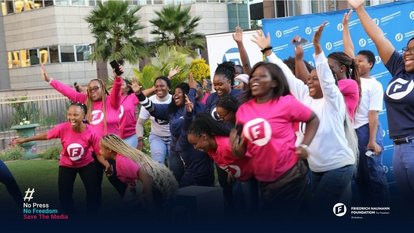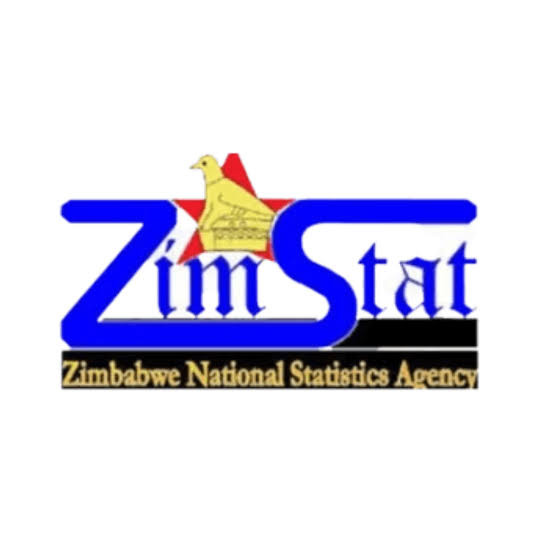
In a bold move to challenge deep-rooted gender inequality in Zimbabwean media, the Friedrich Naumann Foundation’s Womentorship Fellowship recently hosted an intensive three-day training in Harare, arming young female journalists with the tools to not only survive, but lead, in a male-dominated industry.
The programme, which has been running for four years, is more than just a professional boot camp. It is a direct challenge to the newsroom status quo — designed not only to sharpen journalistic skills, but to embolden women in a space where patriarchy still holds firm.
Participants were trained in financial reporting, political and investigative journalism, fact-checking, and cutting-edge techniques such as AI tools for journalists.
Sessions also covered photography, podcasting, digital storytelling, and strategies for media entrepreneurship — skills increasingly vital in an era where traditional media jobs are shrinking.
Veteran journalist Faith Zaba, who also served as a facilitator, made no attempt to sugar-coat the motivation behind Womentorship, which has benefitted more than 450 aspiring female journalists since its inception.
“We started this programme because we were tired of waiting for change,” she said.
“Newsrooms in Zimbabwe have long been a boys’ club — exclusionary, hierarchical, and unsafe for women,” she said
“Yes, journalism in Zimbabwe is risky for everyone, but for women, it’s a battlefield twice over: one for truth, and another against patriarchy.”
- Malawi chiefs shut down Chinese owned mines
- Malawi chiefs shut down Chinese owned mines
- Influx of fake drugs worries medical experts
- A test case for Nigeria’s Cybercrime Act
Keep Reading
Zaba, who has spent 33 years in journalism, spoke candidly about the personal cost of her career, including repeated sexual harassment.
“I almost quit. My career was nearly destroyed. It’s a miracle I’m still standing,” she said.
“After 33 years in this profession, it breaks my heart that young female journalists are still being subjected to the same kind of sexual harassment I faced decades ago.”
That experience, she said, is what fuels her drive to protect and prepare a new generation.
“The newsroom must be a space of truth, not trauma. Womentorship is here to help young women survive, thrive, and change this industry for good.”
This year’s programme pushed further into digital innovation, with an eye on turning participants into “digi-preneurs” — women building their own platforms, monetising their voices, and taking ownership of their narratives.
“Media houses are shrinking. Career paths are vanishing. But in this disruption lies opportunity,” Zaba said. “We’re not just cultivating sources — we’re cultivating resilience.”
FNF project manager Fungisai Sithole highlighted the programme’s broader mission of redressing patriarchal norms both in the media and society.
“Media remains male and our society is still predominantly patriarchal. This itself poses a challenge for young female entrants into the profession,” she said
“The Womentorship seeks to equip young female journalists with tools and strategies for thriving in the newsroom with a view towards building an equal and inclusive media profession.
“Womentorship exists to equip them with tools and strategies to not only navigate this space — but transform it.”
Its wide-ranging curriculum was designed to build “credible, confident, and professional journalists with the capacity to transform newsrooms and the broader media landscape”.
“This is part of the FNF efforts towards building open and equal media in societies, where media freedom is promoted, protected and defended,” Sithole said.
“This is a crucial intervention in a world that seeks to undermine media freedom, undermine the truth, while giving prominence to fake news."
Photographer and trainer Annie Mpalume praised the programme’s future-focused content.
“It was a game-changer. Including AI, fact-checking, and multi-media journalism gave participants a real edge. I saw remarkable growth in their critical thinking, storytelling, and digital skills,” she said.
Participants described the experience as transformative, both professionally and personally.
“I’m grateful to be part of the Womentorship programme,” participant Hannah Mapisire said. “It was insightful, and I got to connect with inspiring women from across the country.”
Tatenda Gabi echoed the sentiment: “This wasn’t just a journalism workshop. It was a therapy session and a safe space to share real challenges. I now have the skills — and the courage — I need to succeed.”










